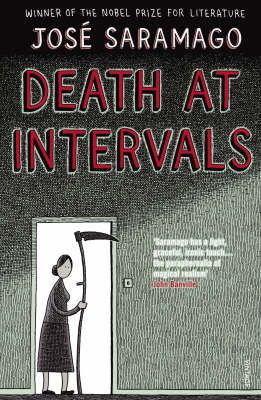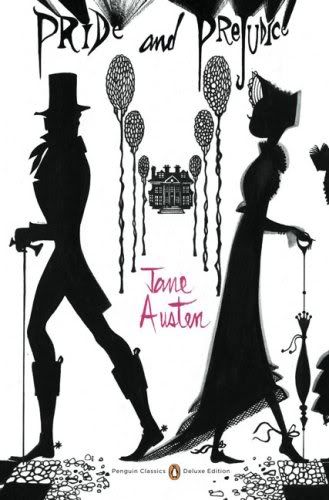 A Gate At The Stairs is one of "those" books - beautiful writing, intelligent conversation flowing through the book, a sensitive plot, and a book with great potential.
Tassie is a college student in the Mid-western town of Troy, who finds a job as a baby sitter for Sarah, an affluent restaurant-owner who adopts Emmie, a "biracial" child. Sarah is perpetually busy running the upmarket restaurant, and Tassie ends up spending a fair bit of time mothering Emmie.
A Gate At The Stairs is one of "those" books - beautiful writing, intelligent conversation flowing through the book, a sensitive plot, and a book with great potential.
Tassie is a college student in the Mid-western town of Troy, who finds a job as a baby sitter for Sarah, an affluent restaurant-owner who adopts Emmie, a "biracial" child. Sarah is perpetually busy running the upmarket restaurant, and Tassie ends up spending a fair bit of time mothering Emmie.
While there are two other parallel stories (Tassie's "first love" and Tassie's brother contemplating his future at the military), the adoption of the biracial two year old by a white couple was the one that had me glued to the book.
When a boy uses the infamous n-word at Emmie, the babysitter reports it to Sarah, who starts a "group" for parents with non-white children. The group meets every Wednesday, and contemplates what the future holds as well as discusses the present-day situation of the African American race. In a post 9/11 world, racism in midwestern America is still rampant, and the lives of the minority is still under question. The snippets of conversation on Wednesday evenings that Moore penned down had me absolutely boggled. Call me naive, but I don't think much about racism or how a person's caste or skin colour can affect their place in society. In my ideal world, it shouldn't, and maybe because I've not witnessed it first hand, I'm absolutely oblivious. As Martin Luther King once said, "judge not a man by the colour of his skin, but by the content of his character" - but that doesn't really happen, does it?
Yes, I've read a fair bit about slavery and the troubles African Americans face, but, most of those books are from a different age, and in my little head, that time had just gone by. The unfairness of racial abuse towards biracial children literally had me perplexed!
Anyway, I digress. Back to Moore's book.
As one might expect, the plot twist comes from a blast from the past that reminds the many characters that the past does not forget. In my opinion, this was a little excessive as well, and Moore was trying to make the plot more dynamic, more "exciting" - to an extent, she did succeed, but, it just left me feeling perplexed.
The book was an interesting read, but, the last seventy pages just ended up taking a gigantic detour and having a story which didn't really fit in with everything else. Again, maybe it was something that does belong to the post 9/11 world? I don't know - I think the book would have benefitted from either streamlining the story, or avoiding some of it, despite it being emotionally powerful, and relevant in this day and age.
You can't fault the writing style though. It's beautiful, witty, insightful, and although Tassie at times comes across as way too mature for her age, at other times I could relate to her and her college lifestyle. Even Sarah and Edward (Sarah's husband) characters are well-developed, and while I didn't care much for the latter, I did sympathise with Sarah.
Think this book is worth a read, and I'd love to read more of Moore's works, to see if they're as insightful.
Have you read anything by Moore? How do you think her short stories compare to her novel?
 "Charming" - That's the first word that came to mind when I turned over the last page of this novella. I haven't seen the Audrey Hepburn movie, so I didn't really know much about the plot (maybe I really do live in my own little cocoon) prior to reading the classic.
There's Holly Golightly, who gets the star billing, as the writer recounts memories of his glamourous neighbour many years later. Holly Golightly is a young woman, drifting through life in New York in the 1940s: the bars, the martinis, parties, the social scene. A complex character, who's a wonderful combination of being naive and stubbornly independent, she keeps her friends close yet at a distance.
"Charming" - That's the first word that came to mind when I turned over the last page of this novella. I haven't seen the Audrey Hepburn movie, so I didn't really know much about the plot (maybe I really do live in my own little cocoon) prior to reading the classic.
There's Holly Golightly, who gets the star billing, as the writer recounts memories of his glamourous neighbour many years later. Holly Golightly is a young woman, drifting through life in New York in the 1940s: the bars, the martinis, parties, the social scene. A complex character, who's a wonderful combination of being naive and stubbornly independent, she keeps her friends close yet at a distance. In terms of books being confusing and complex, this one ranks right up there. New characters being introduced every couple of pages, the story taking dramatic turns, changing from showing corruption while trading in the 18th-19th century to a surreal adventure story, and there's a love story thrown in, just for good measure as well.
But no - that's not all. In fact, that's simplifying it much.
In terms of books being confusing and complex, this one ranks right up there. New characters being introduced every couple of pages, the story taking dramatic turns, changing from showing corruption while trading in the 18th-19th century to a surreal adventure story, and there's a love story thrown in, just for good measure as well.
But no - that's not all. In fact, that's simplifying it much. This is the third and final book of the
This is the third and final book of the  I bought this book back in January, simply because the blurb likened it to
I bought this book back in January, simply because the blurb likened it to 
 Angela Carter's debut book, Shadow Dance, is the fifth book by her that I've read, and it's as bizarre as the previous three. Due to a million other things, I wasn't able to get my thoughts out on this sooner, which is a pity, as I wanted it to tie in with Claire's
Angela Carter's debut book, Shadow Dance, is the fifth book by her that I've read, and it's as bizarre as the previous three. Due to a million other things, I wasn't able to get my thoughts out on this sooner, which is a pity, as I wanted it to tie in with Claire's  Don't you love Terry Pratchett books? I do, despite never having read any in my teenage years, and Nation, a non-Discworld story, is no exception. Set in an alternate universe (or a parallel universe, if you like), this is the story of a young boy (Mau) whose homecoming has been ruined by a massive tidal wave, which has completely destroyed his village. There are no survivors, but him; and then he meets another survivor - from a shipwreck. Daphne, a posh British girl, with some royal blood, who doesn't speak the same language as Mau, nor is she accustomed to his kind of lifestyle.
As they try getting acquainted with one another, Pratchett exploits the humour surrounding language and cultural differences, keeping the reader thoroughly entertained; be it Daphne cooking for him, or him not realising what pointing a gun at him meant; be it the importance of trousers or the lack of clothes altogether.
Don't you love Terry Pratchett books? I do, despite never having read any in my teenage years, and Nation, a non-Discworld story, is no exception. Set in an alternate universe (or a parallel universe, if you like), this is the story of a young boy (Mau) whose homecoming has been ruined by a massive tidal wave, which has completely destroyed his village. There are no survivors, but him; and then he meets another survivor - from a shipwreck. Daphne, a posh British girl, with some royal blood, who doesn't speak the same language as Mau, nor is she accustomed to his kind of lifestyle.
As they try getting acquainted with one another, Pratchett exploits the humour surrounding language and cultural differences, keeping the reader thoroughly entertained; be it Daphne cooking for him, or him not realising what pointing a gun at him meant; be it the importance of trousers or the lack of clothes altogether.
 Death At Intervals (also published as Death With Interruptions) is an extremely surreal book by the Nobel Laureate, José Saramago. In a country (not necessarily futuristic), people have stopped dying one new year's day, in spite of illness, accidents and life in general.
The different strata of society react differently: people are initially joyous as they contemplate immortality; the religious people and the philosophers try debating it out - without death, what is the point of religion - and, the politicians, who try and figure out the socio-economic repercussions.
Death At Intervals (also published as Death With Interruptions) is an extremely surreal book by the Nobel Laureate, José Saramago. In a country (not necessarily futuristic), people have stopped dying one new year's day, in spite of illness, accidents and life in general.
The different strata of society react differently: people are initially joyous as they contemplate immortality; the religious people and the philosophers try debating it out - without death, what is the point of religion - and, the politicians, who try and figure out the socio-economic repercussions. We live in a world of the Columbine High School shootings, the Red Lake High School shootings and the Virginia Tech shootings. Something pushes people to pull the trigger on innocent people, and hard as we may try, the horror that ensues just cannot be justified. In Simon Lelic's debut novel, Rupture, the shooter, Mr. Samuel Szajkowski, was a teacher at a London public school. At assembly one morning, he shot three students and one teacher, before turning the gun on himself.
The novel reads as a fast paced mystery novel, despite the perpetrator of the crime already being dead. Inspector Lucia May is in charge of what seems to be a fairly straightforward case, and her superior wants a to-the-point report, which will close the case for good. However, Lucia starts looking into the "why" of things, as opposed to immediately closing the case as her boss wanted her to, which annoys him to no end.
We live in a world of the Columbine High School shootings, the Red Lake High School shootings and the Virginia Tech shootings. Something pushes people to pull the trigger on innocent people, and hard as we may try, the horror that ensues just cannot be justified. In Simon Lelic's debut novel, Rupture, the shooter, Mr. Samuel Szajkowski, was a teacher at a London public school. At assembly one morning, he shot three students and one teacher, before turning the gun on himself.
The novel reads as a fast paced mystery novel, despite the perpetrator of the crime already being dead. Inspector Lucia May is in charge of what seems to be a fairly straightforward case, and her superior wants a to-the-point report, which will close the case for good. However, Lucia starts looking into the "why" of things, as opposed to immediately closing the case as her boss wanted her to, which annoys him to no end. Mee
Mee  I discovered the wonderful world of
I discovered the wonderful world of